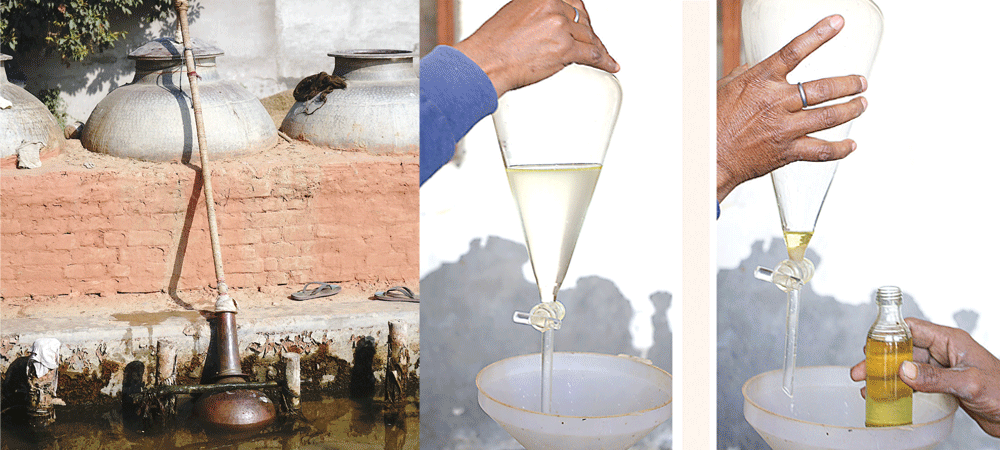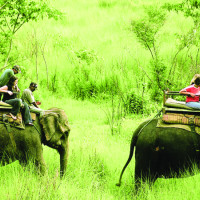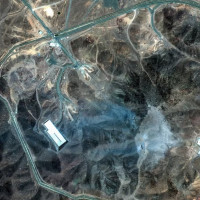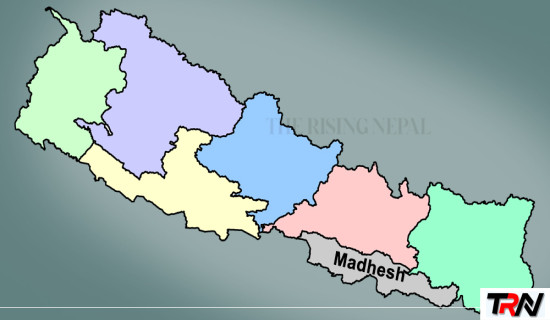- Tuesday, 24 June 2025
Extracting Essential And Perfume Oils
Persijs Muznieks
The richness of the flora of the Himalayan mountains provides excellent opportunities for the use of wild and cultivated plants in medicine and cosmetics. The special climate of the mountain valleys, the clean air, the spring water create great advantages to use its fauna and flora for the extraction of essential oils, which are a basic product for the entire cosmetics industry. This process is labor-intensive and takes place in several phases.
Harvesting plants
It can be said that it is seasonal in nature. However, in mountain areas, valleys with changing climatic conditions, the time of harvesting plants can be extended from early spring to late autumn. It is also important to consider the phases of the month and the time of day.
Harvesting is a very responsible period, the moment when the plant reaches full energetic maturity. These are seeds, plant leaves, flowers, trunk and roots, tree bark, resin, pollen and fruits. For example, there are plants that reach their energetic maturity on the night of the full moon, so, it is a special harvesting time. Only by observing all the peculiarities of the work, astronomical and clock time, it is possible to obtain a quality product.
The harvest time can vary significantly in different parts of Asia. Also, the spring and autumn harvest can differ significantly in terms of flower quality. This experience should also be taken into account during grain planting time.
A bit of history
The Greek Queen of beauty, the saintly Cleopatra, was proud to show off her perfume kitchen. However, an interesting fact with a historical accent brings to mind an event whose echo can be felt until today.
One day she went to take another one scented bath filled with fresh flowers. It happened that the servers had not completely cleaned the bathtubs where there were still bunches of flowers from the previous bath. The flowers were withered and lying in a strange yellow liquid that gave off a pleasant aroma. Under the influence of hot and cold water, it was created, something like a distillation process that naturally sucked the strange liquid from the flowers.
Extraction technology
When the plant is thermally treated, a liquid concentrate is obtained, which contains a mixture of various essential oils in the purest form. The next process commonly used by large perfumery manufacturers, from the resulting concentrate to create side products that already have many other impurities, thus creating oil with a different character and application.
Obtaining a completely pure (Attar) oil requires special skills. Many of its processing methods are inherited from ancestors and earlier. Those who are in direct contact with the work, keep the secret behind the seven keys.

They are real live tasters and with sleepy eyes can name from which plant the extract is obtained, and they will also know the recipes of various mixtures to improve the aroma. They know how to store essential oils, conserve their aroma intensity, colour and viscosity, which changes over time. Driven by a deep interest, an inviting advertisement caught my attention. And after a while, I opened the doors of the very prestigious Aroma Garden salon. Its name in the true sense of the word corresponded to reality.
Upon entering the store, the nose felt a clean and fresh whiff of aroma. After getting to know each other and exchanging a few words, I steered the conversation in the direction I needed.
A man of respectable age, named Dilip Kumar Dixit said, that he started his passion for homeopathy and essential oils at an early age, and proudly added that his professional experience spans over forty years. This allowed me to get to know his business from a professional point of view. He spoke knowledgeable about the wide range of more than three hundred products in his store. About the peculiarities of organic products, their creation and application. His view of human sense organs was interesting. They are very sensitive. They must be taken care of, and if not overloaded with by-products, then a human programs the good tones of the smell in himself and is able to distinguish the good from the bad.
Unfortunately, the big giants of cosmetic manufacturers who present their products in shiny packaging are dominant today. Customers are painfully disappointed to find that its content is often not as advertised, and after prolonged use feel more bad than good, he said.
The manufactoring requires a special sensitivity in the work, which can be acquired over a long period of time, studying and accumulating experience while working with consumer. It is a kind of philosophy based on the psychological effects of aromatherapy. "Never try to convince the buyer, his olfactory organs will give the true answer," he said. When asked how to store aromatic oil so that its aroma remains intact for a long time, Dixit smiled. I realised that I had broken into a forbidden kitchen, because the answer came quite unwillingly.
Much depends on the chosen container in which the oil is stored. When applying the thermal treatment method, microscopic water droplets accumulate in it. If they are not eliminated in time, then the quality of the oil will change.
Immediately after obtaining the concentrate, it is filled into a large container made of camel skin. Why exactly? The animal skin container can be made in any volume, it is safe for transportation. When it is placed in the sun, it heats up and a microclimate is formed inside it, thereby promoting the absorption of tiny water droplets through the walls of the container, which later evaporate in the sun. Over time, all the water evaporates and 100 per cent pure essential oil remains in the container. How long this process can last depends on the variety of the plant. In any case, it lasts at least two weeks, he added.
However, care must be taken as some oils can be so concentrated that storing them in leather bottles can be dangerous as they will simply erode. In this case, the process of separating oil and water, slow draining, is done in a glass container.
It is a very old concentrated oil extraction method called Attar. It is a labor-intensive process and the big perfumery companies usually do not practice it. Nowadays this is achieved by applying chemical compounding methods. The process is undoubtedly faster but the final product is not an organic substance, but a synthetic liquid that is nowhere near comparable to the properties of a natural product.
It is also important to mention the impact of light on essential oils. Place them in the open sun for a couple of hours. A sensitive nose will detect slight changes in the aroma. It does not affect the quality of the product. However, the intensity of the smell changes with time and after years it becomes stronger and darker. Just like an old wine, its quality only improves with the years. If the distillation process is done correctly, the aroma remains the same but lasts longer. After applying on the skin, the scent lasts up to six to seven hours.
So what are the most stable oils obtained in the Attar process? Not only the most durable, but also the most expensive, Dixit aded. Well, for example, the much-loved Sandalwood, whose processing and extraction is under strict government control, has a very mild aroma, and to enhance it, it is mixed with other oils. However, it takes a long time for liquids to
mix completely. In addition to those mentioned above, there are also such Oils as Nina, Jasmine, Mitti (Earth), Rooh Rose or Damask Rose, of which, the last one has surprised the world with its capricious aroma and ranks in the list of the most expensive Attar oils, whose price in the local market ranges from $20 to $25 per gram. In the world market it is dictated by monopolies and they reach astronomical numbers.
Under the pressure of competition, local producers have to face unfair practices. For the sake of profit, large conglomerates shamelessly destroy the quality of a product whose characteristics no longer correspond to the original. This leaves a bad impression not only on the local manufacturer, but also on large perfumery and cosmetics companies. Basically, under compulsion, the natural instinct of a human being in the perception of aroma is deliberately undermined, which prevents the buyer from understanding the sense of taste - namely, what is good and useful.
Mr. Dixit diligently follows the dynamics of the market and is happy to add that the shop is sometimes overrun with tourists. Different nationalities have a different taste. Nepalis are quite lazy about perfumes. However, completely opposite market trends are observed in the salon Three Monks run by his son, Sachidanand Dixit.
I had the opportunity to visit him in person and find an answer about his personal view of perfumery products and their trends in the world market. Dixit was a real talker and a master of his craft.
I tried to provoke him and asked him to smell different perfume bottles without indicating their contents. To my amazement, Dixit correctly named the contents of each bottle. How to achieve this? Can everyone do it? Yes, it is possible, he said, but there are some conditions to consider.
-- An essential oil should be 100% pure and you should keep it in as clean an environment as possible.
-- During the week, smell only one type of product.
This is how you program in your mind the characteristics of only one product. Continue the experiment for one week with other perfumes of your choice. The end result will be amazing. You will be able to distinguish the name of each product/variety with sleepy eyes.
This applies to essences, scented candles, creams, powders and other pure products, the range of which is quite wide, he continued.
Contrary to the father's salon in Kathmandu, the son's salon is more frequented by locals. However, the trends of the last years, the increase in tourism, raise expectations for the growing interest of foreign guests in purchasing nature and human-friendly products. "Hands full of work. Not only mine, but also the salon run by my father, must be provided with a fresh product," he says.
Manufactoring in the village is associated with great responsibility, because any carelessness can destroy the market. Exports take place in small quantities, mostly for private needs.
According to independently conducted surveys, in terms of quality, organic perfumery surpasses the big companies. This is evidenced by the ever-increasing demand for a hundred per cent pure products.
However, in order to enter the world market, it is necessary to comply with its standards, which, unfortunately, are neither financially nor practically within the power of the local manufacturer.
Mystical oils
Plant oils have been used for hundreds of years in homeopathy, magical healing and as perfumes. The oills are mixture of the extracts from the herbs in their purest form. Essences, perfumes, and other mixtures are by-products, characterized as dilutions of oil. Consequently, weaker in their power.
Fragrant New Year!
(Persijs, a press photographer from Finland, is studying culture and costumes of Nepal.)















-original-thumb.jpg)